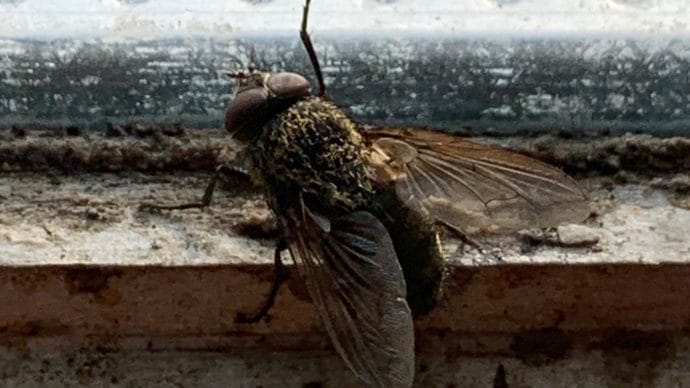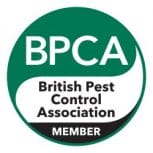Expert Fly Pest Control Services In Maidstone
Many types of flies turn up in properties and buildings, and depending on the fly, their presence will normally indicate an underlying problem that may need resolving. For instance, if flies have found a food source, such as an animal carcass or leftover food, clearing this can solve the problem. In many cases, the issue can be self-explanatory with some basic investigation.
At Pest-Tech, our job is to identify the flies so we can find the source of the fly infestation and carry out a treatment to resolve the issue. Our team has extensive experience in fly control and can remove flies quickly and effectively.
What You Need to Know About Flies
There are over 7000 types of fly in the UK. The most common flies we deal with in and around Kent range from blue and green bottles also known as blow flies, and also the common house fly, Autumn fly and cluster fly. Moving down the size scale, you have the smaller species such as the drain fly, phorid fly and fruit fly.
All types of flies can be difficult to deal with, which is why it’s important that you work with professional pest controllers to remove your current fly problem and prevent future fly infestations.
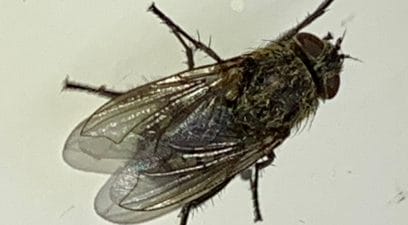
Signs Of A Fly Infestation
Fly problems are very common and can be caused by many different issues that are out of your control, such as living in the countryside, being close to a farm or waterway, or even having a business nearby that may be very attractive to them.
Everyone sees one or two flies on their property at some point, especially during the summer months. So, how do you spot a fly infestation? Common signs include:
Regular Fly Sightings: If you keep seeing large numbers of flies, especially in the same area or following the same path, then this could indicate a fly problem.
Buzzing: If you hear a regular buzzing sound, then this could be a sign that flies are nearby, although it could also indicate bees, wasps and other winged insect pests.
Activity Around Bins And Waste Food: Many types of flies gravitate to food waste and decaying organic matter, so if your bin is a hive of fly activity, then this could indicate an issue.
Maggots: Seeing fly larvae, also known as maggots, crawling around is a sign that there are fly breeding sites in the vicinity.
Clusters Of Dark Spots: Small clumps of dark spots that are about the size of a pinhead and found around light fittings and window frames are fly droppings, and these show that there are probably large numbers of flies on your property.
While their presence isn’t your fault, flies can cause significant issues for both businesses and homeowners as they can carry diseases like Tuberculosis, Cholera and Parasitic Worms, Dysentery, Salmonella and E-coli. To ensure you deal with your fly issue quickly and keep everyone safe, you need to get in touch with Pest-Tech for expert fly control or to fit fly screen doors or insect screens for windows as soon as you see any of these signs of fly activity.
Common Species Of Fly
Throughout the UK, there are over 700 fly species found, but the most common are:
House Flies: House flies are probably the most common species and the type of fly that most of us think of when we imagine these winged pests. House flies have black bodies that are covered in fibrous hairs. Adult flies of this variety reach 6 to 7 mm, with females usually larger than their male counterparts. While they only live for around 28 days, during this time, house flies lay up to 500 eggs, so they can spread rapidly.
Blow Flies: Whether it be blue bottles or green bottles, these flies will normally lay their eggs in a food source; this could be anything from an open bin such as rotten food, overripe fruit, some pet food left down on the floor, to a dead animal carcass such as a rodent or a bird. A blowfly can detect a dead animal from a long way away and will associate it with a good place to lay eggs, as the maggots will have a plentiful food source while they’re growing.
Cluster Flies: These flies cause problems at two times of the year, and this has to do with their life cycle. Firstly, what happens is in late summer, around September or October, they will start to bask in the sun to get as much warmth as possible, and a lot of the time, it will be on white walls, which are the most reflective. As it gets colder, they will make entry to the building via cracks and holes, most commonly through the roof tiles. Throughout the winter, pockets of warmth circulate up to the loft, such as when you get your Christmas decorations down, and they wake up and then start flying about. The second busy time for cluster flies is around March or April, when they start to wake up to go back outside. The loft will once again be alive with activity, and if they can’t get out, then they will head to any gap to make their escape.
Drain Flies: As the name suggests, drain flies are often found in your drains. They can cause a problem but also indicate that you have another issue with your plumbing. If you are experiencing a problem with drain flies, then you need to investigate to establish what is happening. There may be a leak that you are completely unaware of, and drain flies need moisture for them to thrive. They lay their eggs in damp areas and, therefore, if you remove the moisture, this may resolve the problem. However, it can take a bit of time to deal with these issues on your own, so a pest controller will be able to speed up the process. Learn more about removing drain flies in our guide on How To Get Rid Of Drain Flies.
Fruit Flies: These pesky insects are attracted to sweetness and sugars. A common place to have a fruit fly infestation is in pubs and bars, as they like hovering around the beer taps and drink dispensers. A simple approach to remove fruit flies is to carry out diligent housekeeping and lots of cleaning regularly. This can prove difficult in some situations, traps or residual insecticides might be used to get rid of the existing fly infestation.
Each type of fly has unique habits and requires a slightly different approach, which is why it’s best to work with Pest-Tech to get rid of flies from your home or commercial property. A professional pest controller can quickly and effectively remove any fly species and prevent flies from returning to remove the issue and health risk.
Book Professional Fly Control Maidstone Today
Whatever species of fly you’re dealing with, if you find flies in your space, you need to act fast. Flies are hardy pests that can be difficult to eradicate, especially once they start laying eggs on your property. They also spread diseases and can be extremely annoying, so once you find them, you need to work fast to remove them.
DIY fly traps and sprays won’t effectively remove the infestation, whereas experts like us can quickly remove all flies and provide guidance on how to stop them from coming back. We have several techniques we can use to remove flies, including residual chemical products that offer a long-term solution to rid your space of these irritating pests.
Pest-Tech covers Maidstone, Kent and the surrounding area, offering fast responses to all fly control call-outs. So, if you have a fly infestation at your home or business premises, don’t delay. Call 01622 296055 to start the fly removal process as soon as possible.
Commonly Seen Pests in the Home and Workplace
Rats
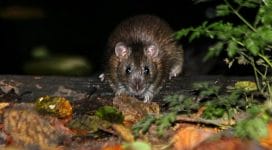
What you need to know about Rats
Mice
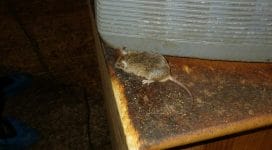
What you need to know about Mice
Wasps
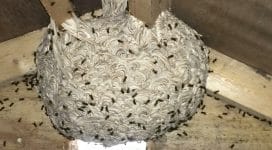
What you need to know about Wasps
Flea Control

What you need to know about Flea Control
Bed Bugs
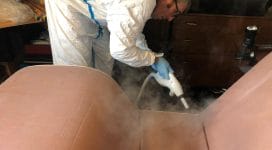
What you need to know about Bed Bugs
Squirrels
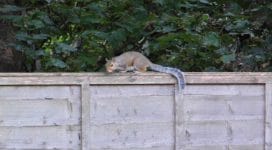
What you need to know about Squirrels
Ant Control
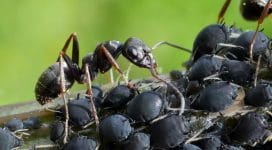
What you need to know about Ant Control
Carpet Moths
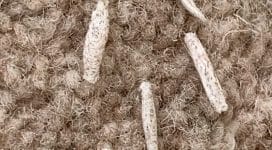
What you need to know about Carpet Moths
Moles
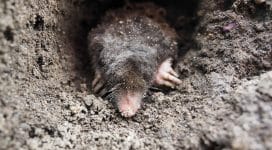
What you need to know about Moles
Bees
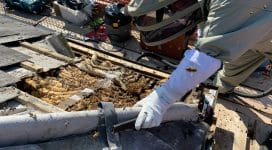
What you need to know about Bees
Pigeon Control
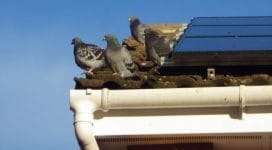
What you need to know about Pigeon Control
Cockroach Control
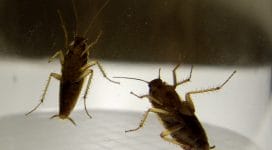
What you need to know about Cockroach Control
